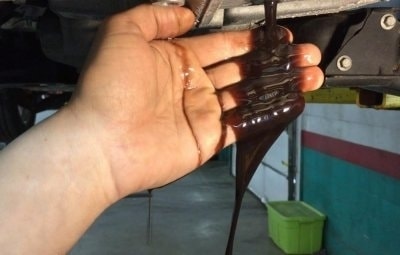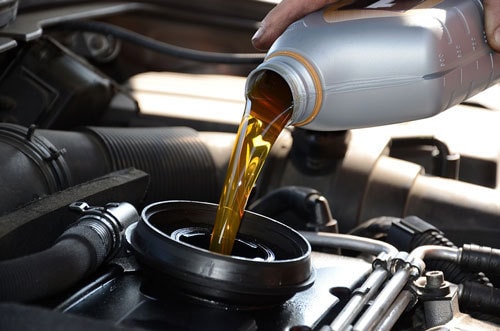7 things to know when changing car oil
(Baonghean.vn) -To protect the car engine and reduce fuel consumption, regular oil changes are essential. However, not understanding the importance of oil changes can cause problems for your car.
1. Cars that are not used for a long time still need to have their engine oil changed.
 |
The oil itself is not consumed much, but the oil contains many additives that perform different functions such as cleaning, anti-wear, anti-rust, anti-oxidation, anti-foaming; and when performing these functions, these additives are gradually consumed, causing the oil to deteriorate and need to be replaced.
Therefore, even if the car runs little, the oil stored in the engine for a long time will also degrade over time. Therefore, in addition to the number of kilometers, the car manufacturer also specifies the time of oil use, usually 1 year; if after 1 year the car has not reached the specified number of kilometers, the engine oil still needs to be changed.
2. Replacement time depends on usage conditions
There are concepts that oil needs to be changed after about 3,000 km, 5,000 km or 10,000 km. All of these can be true, if considered in some way. The oil change period usually depends on many factors such as the age and make of the vehicle, road and climate conditions, and driving habits of the driver.
Older vehicles or those operating on poor road conditions, steep slopes, wet or dusty conditions need to change oil sooner. Vehicles operating in the city with continuous start/stop mode also need to change oil more often than vehicles running on the highway at a steady speed. In particular, gentle driving habits, i.e. accelerating slowly and not braking suddenly, can contribute to prolonging the oil usage time.
3. Black oil proves to work effectively
 |
Because the fuel combustion process generates a lot of soot and dirt, it is extremely important to keep the internal parts of the engine free of deposits. Therefore, engine oil has added detergent additives to clean the surface of engine parts and dispersants to disperse the deposits into small particles and retain them in the oil.
That’s why engine oil quickly turns black when used, which shows that the oil is working well. However, each type of oil can only hold a certain amount of dirt; beyond that, the dirt will settle and stick back to the engine surface - that’s another reason to change the oil on time.
4. Replace with oil of suitable viscosity and quality.
To evaluate and select engine oil, there are two criteria that drivers need to pay attention to: API quality level and SAE viscosity level.
The quality grade indicates whether the oil has all the necessary components to perform the functions of cooling, cleaning, lubricating, etc. The viscosity grade ensures both engine lubrication and helps the vehicle start under harsh conditions.
5. Consider choosing between synthetic and conventional motor oil
If using conventional engine oil, the car owner must remember to change the oil on schedule. Synthetic oil has some outstanding advantages: it contains special additives to prevent deposits; the viscosity and flow of the oil are better in cold weather conditions (mountainous areas, snow and ice); maintains stable viscosity even at high temperatures (hot climates or sandy deserts).
6. Add engine additives
 |
This is only true if the additives are pre-mixed into the oil by the manufacturer before bottling. Most of the famous oil brands add additives to the oil to increase viscosity as well as protect the metal parts inside the machine.
Therefore, adding additives that are not available in the market can make the oil less effective, or at least waste money. To be sure, read the instructions carefully to see if the manufacturer requires any additives.
7. The thicker the oil, the better.
The previous concept of drivers is that the thicker the oil, the better the lubrication ability. However, that is a single-grade oil, which only ensures viscosity at high temperatures enough to lubricate the engine; but the current oil is a multi-grade type that ensures viscosity at high temperatures, and also helps the vehicle start easily at low temperatures because it is not too thick.
Ngoc Anh
(Synthetic)
| RELATED NEWS |
|---|

